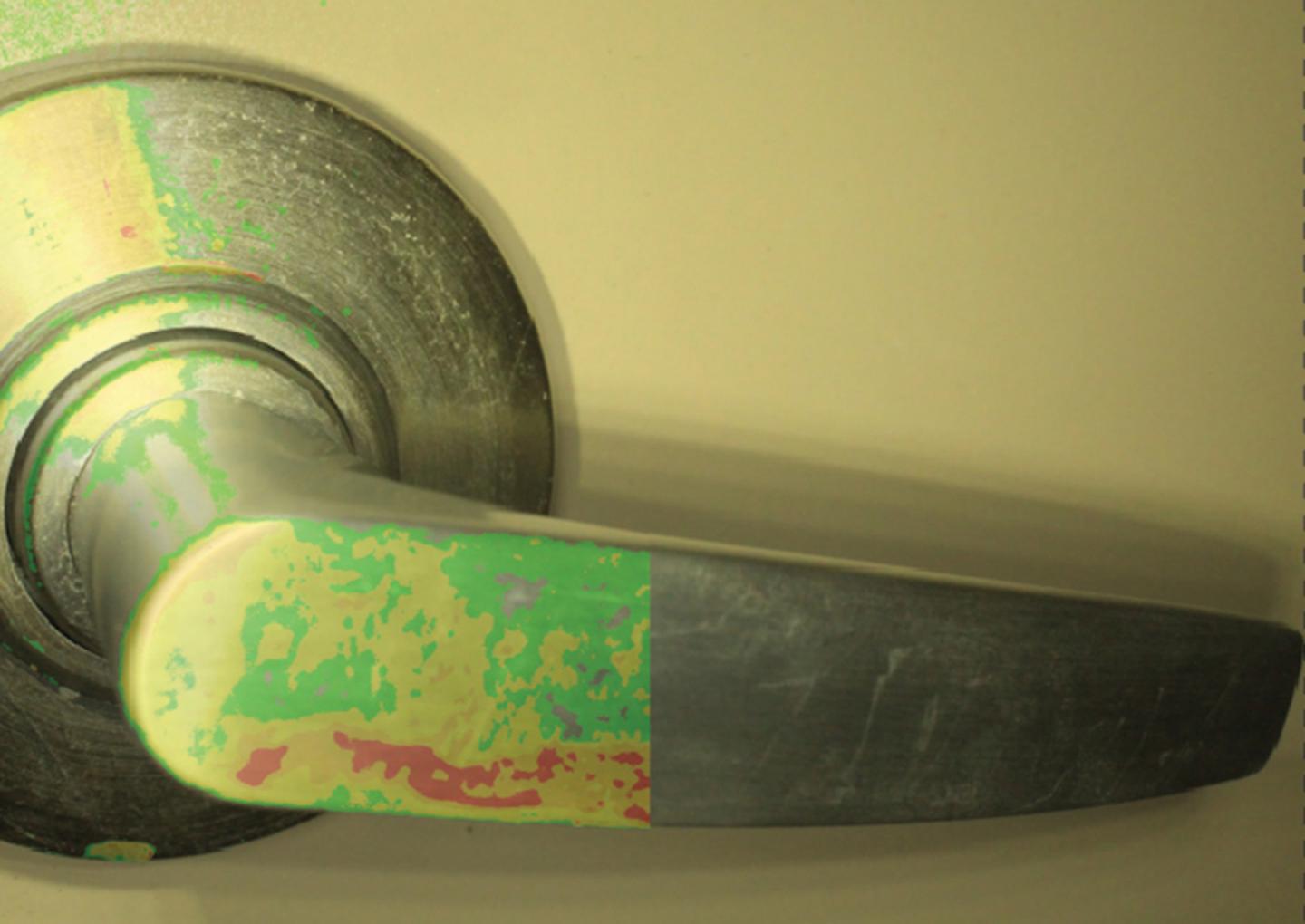Combination of novel nanomaterials with a genomics-based approach will allow for precise identification of pathogens that cause Healthcare-Associated Infections (HAIs).

Credit: OptiSolve, a division of Charlotte Products Ltd.
Healthcare-associated infections are the fourth leading cause of death in Canada, predicted to move up to second place by 2050. Scientists at the University of Toronto received $1.5 million in newly-announced funding from Genome Canada to support efforts to develop a new nanoparticle sensor technology that will allow hospitals and long-term care facilities to rapidly detect and visually identify highly infectious pathogens including C. difficile, methicillin-resistant S aureus (MRSA), Norovirus and influenza.
“Patient-to-patient transmission of dangerous bacteria and viruses through contact with contaminated surfaces is a major problem in healthcare facilities,” says Shana Kelley, University Professor and scientist at the University of Toronto’s Leslie Dan Faculty of Pharmacy. “The sensors that are the focus of this project will enable the rapid and sensitive detection of these pathogens on surfaces to enable their effective decontamination, and potentially reduce or prevent the spread of illness.”
Kelley and her team have partnered with Charlotte Products Ltd., a family-owned Canadian company that develops and manufactures innovative cleaning products. The company has developed an environmental monitoring system and optical sensor technology, called Optisolve Pathfinder®™, which is able to identify areas of biological contamination but not specific bacterial species.
“To effectively prevent the spread of these illnesses, infection control experts need to be able to identify exactly what is on a surface in order to properly decontaminate it. By using nanomaterials enhanced with pathogen-specific recognition units, this information will be gleaned on site, without the need to wait and run tests in a lab offsite,” says Kelley.
Called OptiSolve Insight®™, the new system will significantly reduce healthcare-associated illness while also enabling infection control specialists to avoid taking a “worst-case scenario” approach to infection outbreaks, which can include bed closures and costly cancellation of procedures. The system could also be used to detect and identify pathogens in other high-risk locations like transit hubs and education facilities.
“We hope that the research funded by Genome Canada will decrease rates of infection significantly, which will benefit patients and the healthcare system overall,” says Kelley. In addition to the Genome Canada funding, the project is receiving support from the Ontario Centres of Excellence, University of Toronto and Charlotte Products Ltd that gives the project $4.5M in total funding.
###
Media Contact
Kate Richards
[email protected]
416-978-7117




